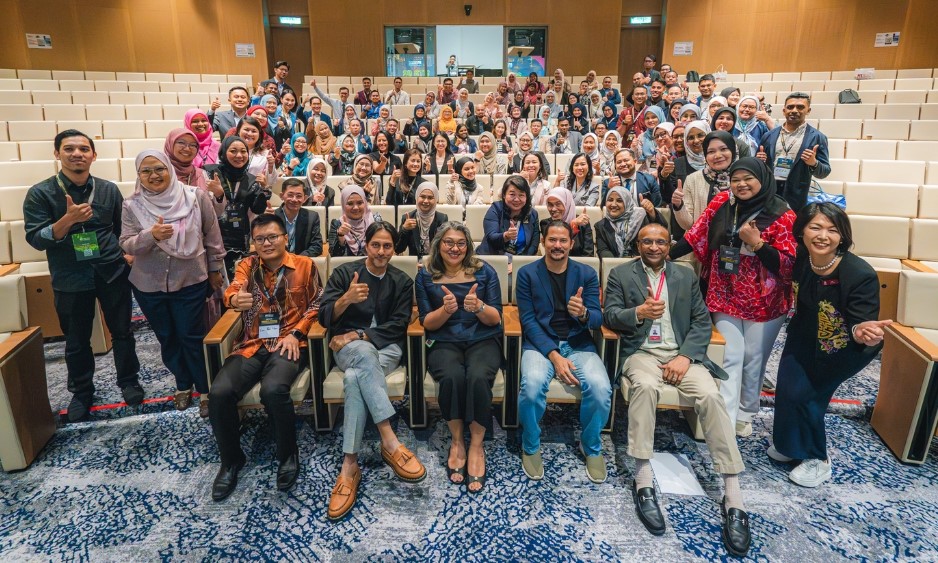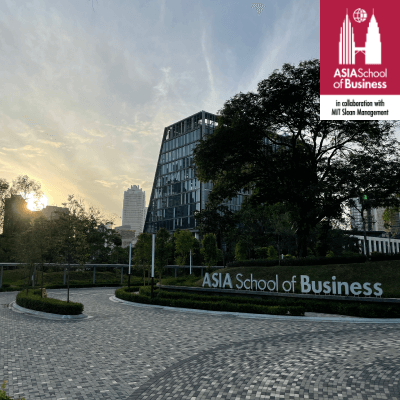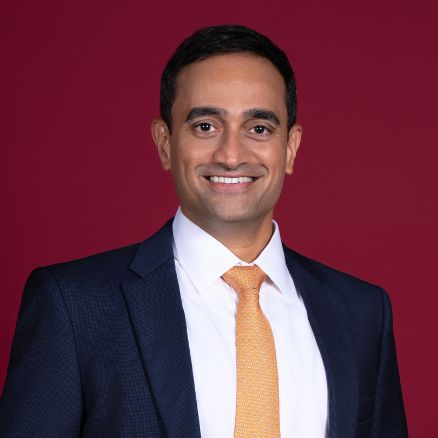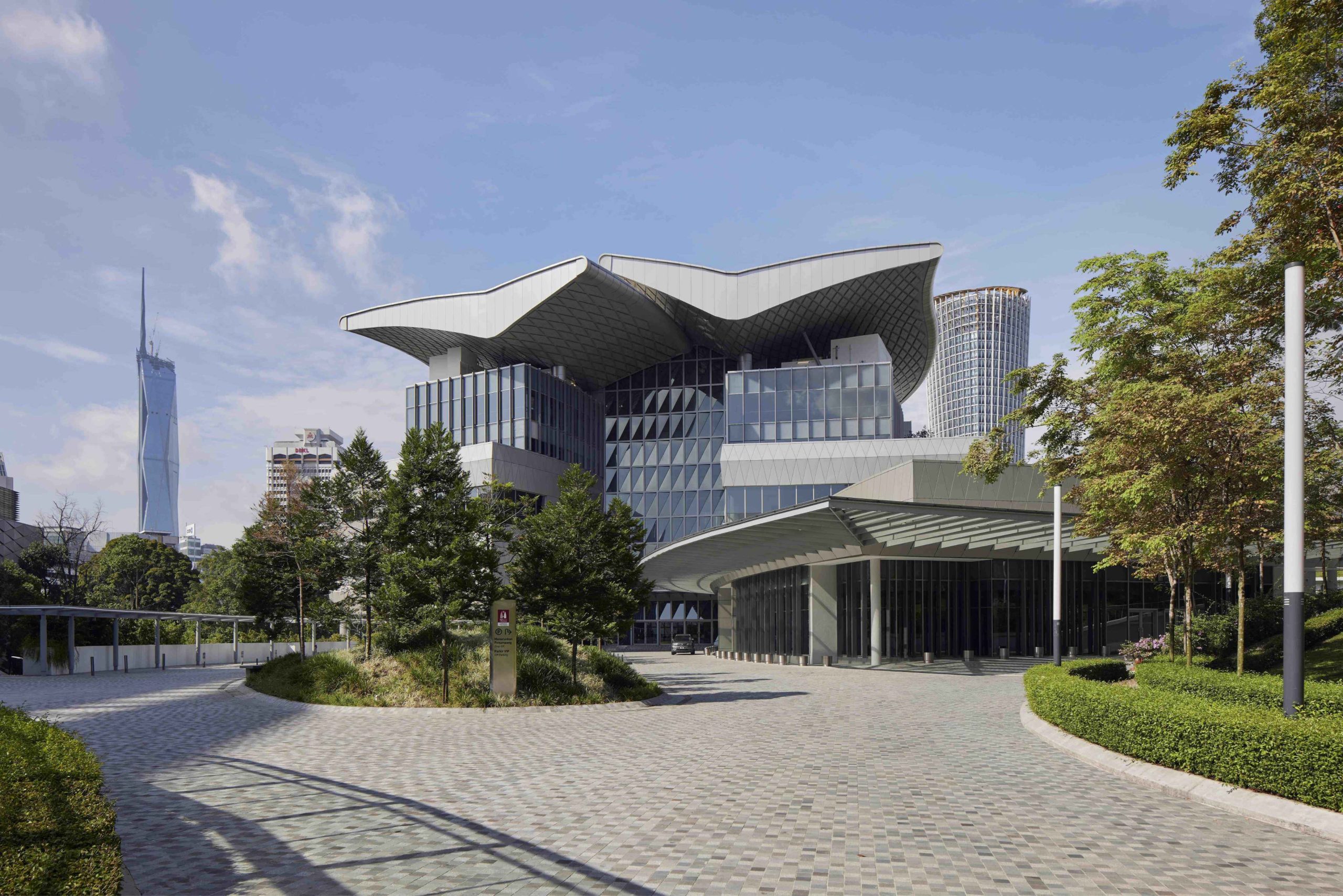- About

Established in 2015 in collaboration with MIT Sloan Management, our vision is to be a global knowledge hub, with regional insights from Asia and the emerging world.
- Faculty & Research

ASB’s research centers conduct impactful research in emerging markets, business strategies, technology, and sustainability. Together, they foster innovation in the business landscape.
- Academics

The ASB curriculum seamlessly integrates MIT Sloan’s rigor with the strategic insights of Asia. With MIT Sloan Immersion and Industry Treks, it immerses future leaders in a diverse range of industries.
- ACE

ASB has launched Agile Continuous Education (ACE), a granular set of hybrid courses that are designed to keep professionals at the forefront of their fields.
- Executive Education


ASB provides executive education programs covering corporate governance, general management, and finance, including the mandatory Financial Institutions Directors’ Education (FIDE) programs.
- Innovation
- Corporate

ASB excels through dynamic collaborations, addressing business challenges with innovation, built on robust partnerships.
Scenario Planning for
Strategic Agility and Resilience
Scenario Planning for
Strategic Agility and Resilience
July 10, 2025
Date
9:00 AM – 5:00 PM
Time
RM 2,750*
Program Fee
In-Person
Format
Overview
The post-COVID-19 world has been marked with an unprecedented level of ambiguity and uncertainty emerging from developments in various domains: the meteoric rise of Artificial Intelligence capabilities and other technological advances, geopolitical tensions, tariffs and trade wars, challenging pursuits of net-zero goals, demographic shifts, etc. These developments not only make the future uncertain, but it is also often difficult to understand how they may affect an organization. Leading an organization in such a world is incredibly challenging and requires a different way of thinking and management than that based on the optimization of certainties and quantifiable risks.
This program introduces a strategic planning process called “Scenario Planning” – a process used since the 1950s for making critical organizational decisions in ambiguous and unpredictable environments. The course uses a hands-on approach involving a combination of lectures, breakout group workshops, presentations, and discussions.
The program is particularly suitable for senior leaders and members of boards of directors, who are responsible for stewarding organizations in environments marked by large systemic changes (such as those mentioned above). The traditional decision-making tools focusing on operational excellence and risk management are inadequate in such environments when it is difficult to know what those systemic changes even mean for the organization and how they unfold. Scenario planning is a systematic way to learn about the changing environment, structure the uncertainty, synthesize divergent views, and chart a way forward using adaptable and resilient strategies – instead of getting paralyzed by the fear of the unknown.

- Recognize the challenge of uncertainty and ambiguity, and how it differs from risk.
- Identify the void scenario planning fills in strategic decision-making toolkit
- Create custom scenarios by following a systematic process
- Apply the scenarios to define resilient and adaptable strategies
- Understand how scenario planning creates vigilant organizations
- Members of boards of directors
- Senior management
- Management staff
- Anyone who might find this program helpful

Shardul Phadnis
Associate Professor II of Operations and Supply Chain Management
Faculty Profile
Shardul Phadnis is a Professor of Supply Chain and Operations Management at the Asia School of Business. He has over fifteen years of experience working with senior management in businesses and the public sector on strategic and long-term scenario planning, in addition to seven years of hands-on early-career work in manufacturing management. He has led supply chain scenario planning projects at organizations in various industries like chemicals, convenience store retail, food & beverage, pharmaceutical distribution, semiconductors, and more. He is an active researcher with publications in journals such as MIT Sloan Management Review, Strategic Management Journal, Academy of Management Perspective, Technological Forecasting & Social Change, and Production and Operations Management.
Detailed accounts of some of his corporate and public strategic scenario planning projects are published in his book Strategic Planning for Dynamic Supply Chains: Preparing for Uncertainty Using Scenarios (2022, Palgrave) details the process of scenario creation and application, illustrated with in-depth accounts of his first-hand three case applications. Shardul is a sought-after speaker on supply chain scenario planning.
Shardul serves as the President of the board of directors of one of Malaysia’s largest foodbanks, The Lost Food Project. He holds a PhD in Engineering Systems from the Massachusetts Institute of Technology with research focusing on strategic supply chain design and scenario planning.
Connect with us to start
Scenario Planning for
Strategic Agility and Resilience
RM 2,750*
Fee excludes accommodation at ASB Residential for outstation/ overseas participants but can be arranged at additional cost.

RM2,750.00
Program Fee